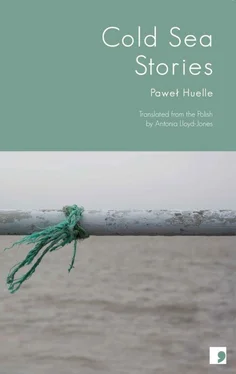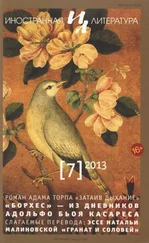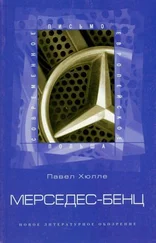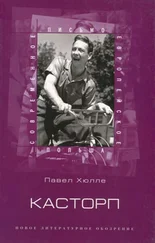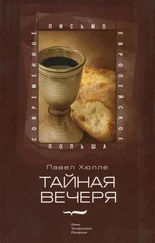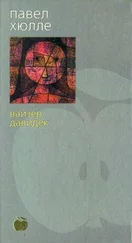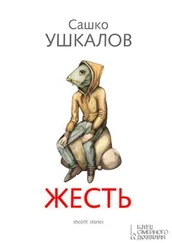The next few bicycling nights were warm and starry. After delivering the bulletins Fredek and I would ride to the beach at Brzeżno or Jelitkowo, and there, waiting for the sunrise, we would chatter away like souls possessed about what was going to happen – next day, month or year. Things that had been quite unthinkable for years on end now seemed within reach. Sometimes we reminisced about our school days, including the student chaplaincy on Czarna Street, where what attracted us was not so much religious need as the charms of the girls. Whenever Alicja sang ‘Ma-ra-na-tha’ from the altar in her beautiful contralto voice, to the sound of a guitar, a flute and a violin, there can’t have been a single boy who didn’t want to take communion in her company. Joanna had a lovely black plait, and as she read Saint Paul’s words about love, our desires, though not originating from the soul or the Scriptures at all, filled the chapel with sexual tension.
We had other memories too, of the City Parks Service and Scout Brigade IIIb on work camp in 1974, tidying up the old German graveyard. When the excavator scoop rose yet again, a white stream of skulls and bones had come pouring out of an enormous heap of sand – they were the SS-men shot by the Soviets, probably in 1945, lying in an unmarked mass grave. Iron crosses, helmets, and especially death’s head insignia from the officers’ caps enriched more than one collection of militaria in our city that summer. We managed to stuff our pockets and plastic bags with them before the prosecutor arrived. That same year, before the holidays began, Fredek and I had scrawled a message on the wall at our school: ‘We’ll get revenge for Katyń!’ How surprised we were next day when instead of a maths test we had a special assembly for the first lesson. Accompanied by two secret policemen, the headmaster threatened to expose and punish the guilty parties. Afterwards, as a historian, he gave us a half-hour lecture that proved without question that the tens of thousands of Polish officers and civil servants who died there were killed on the orders of Hitler, not Stalin.
At dawn, as the sphere of the sun rose over the bay, I was riding my Ukraina home. The quiet, empty suburbs were still dozing as I thought about that mythical journey of my father’s, which Lucjan was so fond of asking about. My father had paddled an ordinary canoe more than six hundred kilometres along the River Dunajec, then the Vistula, to Gdansk. In literally the heart of the city, on the Motława, he had put down his oar, picked up his rucksack and set off through the burned-out, silent streets, where brick dust and the smell of people burning were falling like a mist on the remains of the thousand-year Reich. He never liked to talk about it; all I knew, which was obvious, was that he had gone in search of a new life, because the old, pre-war one had ceased to exist in any way, shape or form, but why did he choose that particular route and direction? Only now, 35 years after his early morning march through the gutted streets, as I rode through almost the very same places on my bike, did I think he might have been like Abraham, who had received a summons from God: ‘ Get thee out of thy country, and from thy father’s house ’. And if, I continued to fantasise, he might have been Abraham, I would have been Isaac, and then the remark Lucjan had made just after I was born – ‘ Where I’ve come from he wouldn’t last as long as five hours ’ took on a completely different meaning and significance; it would be like a prophecy, not a commentary on an ordinary situation defined by history. But what on earth did that change in my life?
The bicycle express soon came to an end, on the day when Lech Wałęsa the electrician was carried on the workers’ shoulders and declared the end of the strike. Not long after I got my first job as a journalist at the Solidarity union information office. Fredek was in charge of the printing. The revolution was having ever wider-reaching effects, and for lack of other goods, had become the number one export item, as a while later the Czechs, Germans, Hungarians and Slovaks came to believe, and finally the Russians themselves. Whatever my thoughts about it later on, often critical, nothing could change the miraculous fact that it brought freedom, without so much as a single hair falling from the heads of our opponents – even those who had more than once fired, or given orders to fire at people merely because they were demanding bread and liberty. In fact they only quailed with fear once, when the television showed the execution of Nicolae Ceauşescu.
The clunky Ukraina went on providing excellent service. I rode it to work and to the university, where instead of writing my dissertation I was helping my colleagues to set up the Independent Students’ Union. One October day as I was organising a rally, Lucjan died. The funeral did not draw a crowd. A few old men – former Gulag prisoners, the priest, my parents and I said the prayers. The day before the burial, when Lucjan’s body was lying in the mortuary, my father and I went to his attic to start sorting out his flat. In the letterbox I found a delivery note, and that afternoon I collected the parcel. It was the Hebrew Bible, published by the Landau Foundation if I remember rightly.
‘What shall we do with it now?’ my mother fretted. ‘They don’t keep Braille in normal libraries, and I’m sure no one knows Hebrew at the ones for the blind!’
‘We’d best send it back,’ my father reckoned.
But I had another idea. In the chapel at Srebrzysko, before the coffin was closed, I placed the Book in Lucjan’s hands, with his right index finger just under the cover, touching the first letter of Bereshit, or the Book of Genesis. As the gravediggers were flattening the small mound of earth with their spades, I remembered a line from The Aeneid that I had heard my cousin Lucjan quote in the first days of the August strike: Ibant obscuri sola sub nocte per umbras . Distracted by the funeral, for lack of a dictionary I couldn’t translate it properly, and afterwards I plain forgot about it. Years later, as I was leafing through a beautiful translation of Virgil in a bookshop, I found that extract, which goes: ‘On they went, those dim travellers under the lonely night, through gloom…’
IN THOSE DAYS buying anything – even fish – rose to the status of a problem. There was even a joke about it that used to do the rounds in our city. Why before the war was it possible to buy fish as far inland as Drohobycz? Because in those days Poland had only just over a hundred miles of coastline. And why since the war is it impossible to buy fish even in a port? Because these days Poland has more than three hundred miles of coastline.
A second, quite accidental piece of comedy on the same subject was provided by an advertising cartoon shown on our cinema screens at some point in the mid-1970s, after the obligatory newsreel and the so-called extra. A fish appeared on the screen, marked with the symbol of the Central Fish Processing Plant, and addressed the audience, saying: ‘No fish will tell you this himself, but eating them’s good for your health. Come and shop at the CFPP!!!’ The whole audience gathered in the cinema used to roar with laughter at this ad, because the shelves in the shops – including the fishmonger’s – were glaringly empty. Why do I mention this?
Because I’m thinking about Christmas Eve. And as I’m thinking about Christmas Eve, there’s no way of avoiding the subject of fish.
In my family, unanimity had reigned in this respect ever since – by decree of Stalin and the rest of the Big Three – we had been resettled in Gdansk. As a result of this enforced emigration, a certain basic change in culinary predilections had taken place. It wasn’t carp (which stank of silt), or pike (which was awfully bony), but cod, huge and fresh, that had become the main feature of our Christmas Eve menu. My father, who had arrived in the city on the bay in 1946, would speak with a tear in his eye of his expeditions to Bonsack (in other words, Sobieszewo Island), where in the forties and fifties you could buy fresh and smoked fish from the fishermen – outside the framework of the Central Fish Processing Plant, of course. I remember the large fillets of cod my mother used to fry, and not just for Christmas Eve, and the chunks of smoked eel, whenever Uncle Henryk – hero of the Warsaw Uprising – came to see us on my father’s name-day. Zander too, delicate and delicious, brought home by bus from Bonsack for all sorts of family occasions.
Читать дальше
